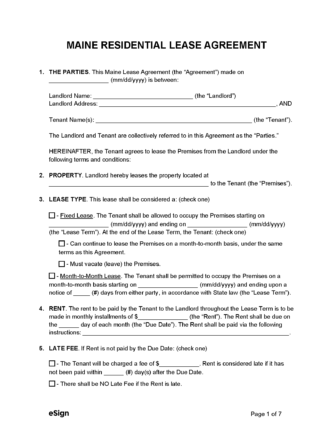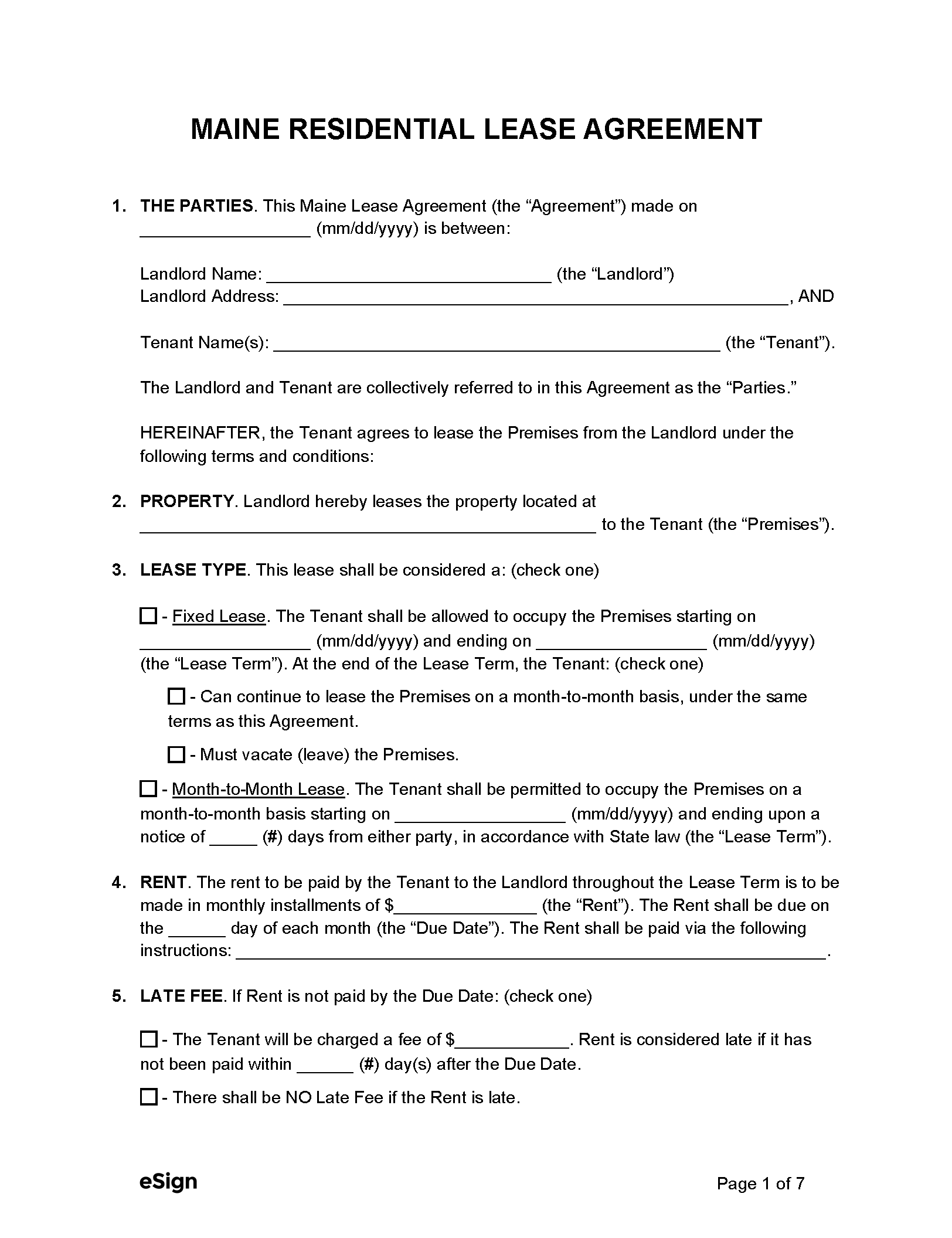Agreements: By Type (6)
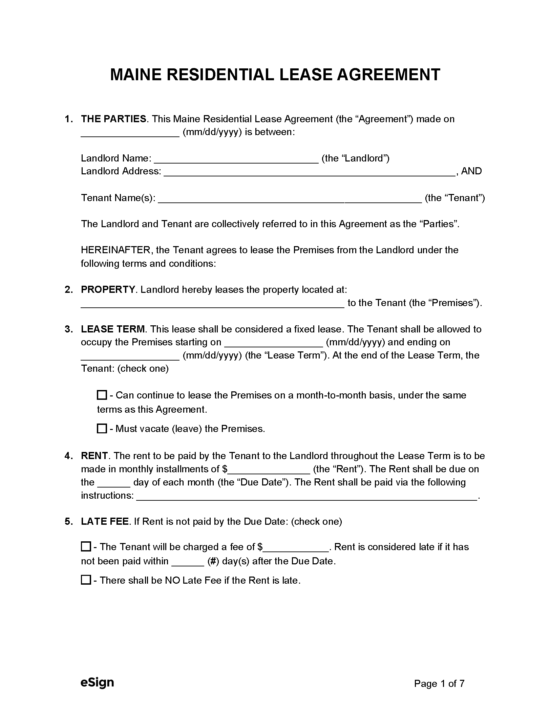 Standard (1-year) Lease Agreement – The most common lease agreement, this one-year lease is used to rent residential property to a tenant. Standard (1-year) Lease Agreement – The most common lease agreement, this one-year lease is used to rent residential property to a tenant.
Download: PDF |
Commercial Lease Agreement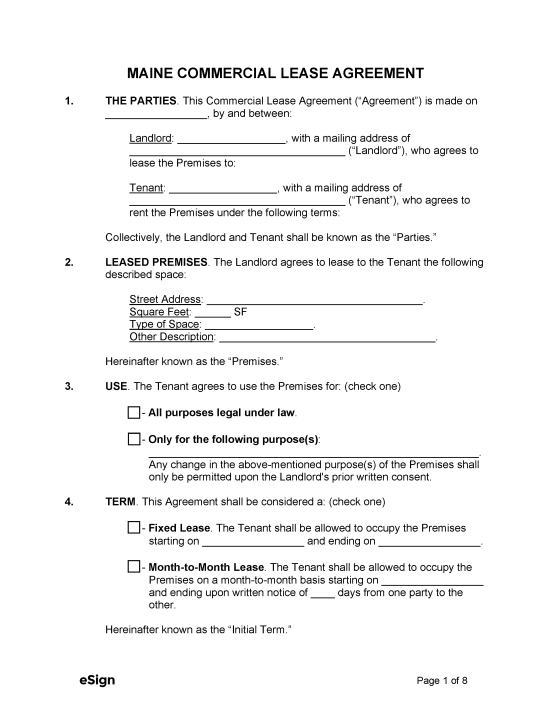 – A commercial lease agreement is used to rent out commercial property such as warehouses, office space, and retail space. – A commercial lease agreement is used to rent out commercial property such as warehouses, office space, and retail space.
Download: PDF, Word (.docx), OpenDocument |
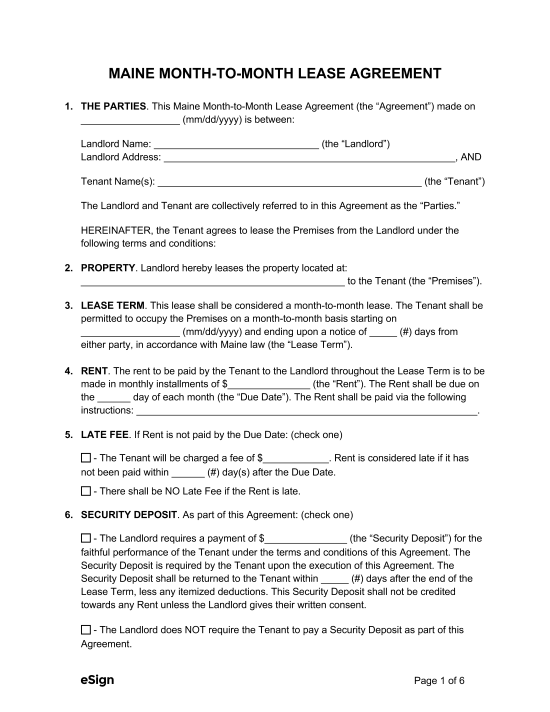 Month-to-Month Lease Agreement – A month-to-month agreement has no fixed termination date and renews each month with the payment of rent. Either party can terminate the agreement at any time with sufficient notice. Month-to-Month Lease Agreement – A month-to-month agreement has no fixed termination date and renews each month with the payment of rent. Either party can terminate the agreement at any time with sufficient notice.
Download: PDF, Word (.docx), OpenDocument |
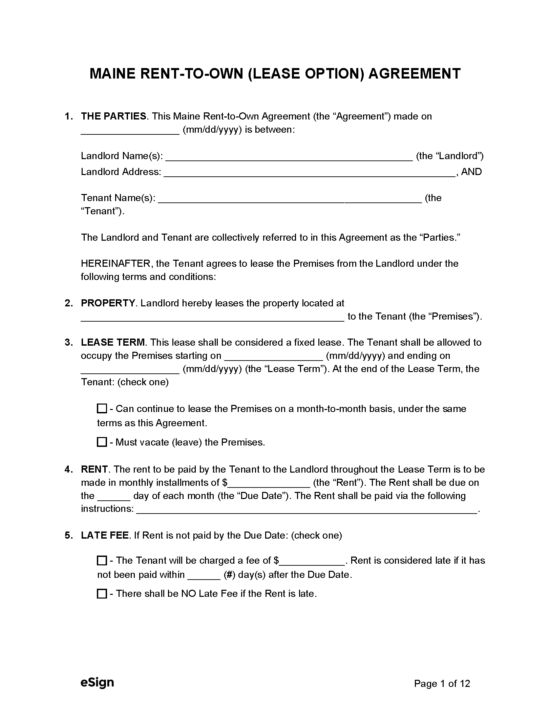 Rent-to-Own Agreement (Lease Option) – A lease wherein the tenant agrees to rent the property for a pre-determined period with the option to purchase the property before the lease term ends. Rent-to-Own Agreement (Lease Option) – A lease wherein the tenant agrees to rent the property for a pre-determined period with the option to purchase the property before the lease term ends.
Download: PDF |
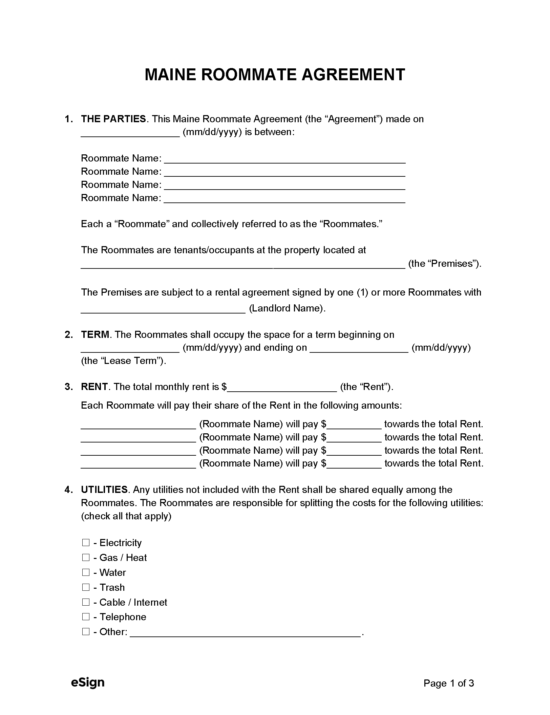 Roommate Agreement – A roommate agreement ensures that all inhabitants of a rental space agree to the rules of sharing the space. Roommate Agreement – A roommate agreement ensures that all inhabitants of a rental space agree to the rules of sharing the space.
Download: PDF, Word (.docx), OpenDocument |
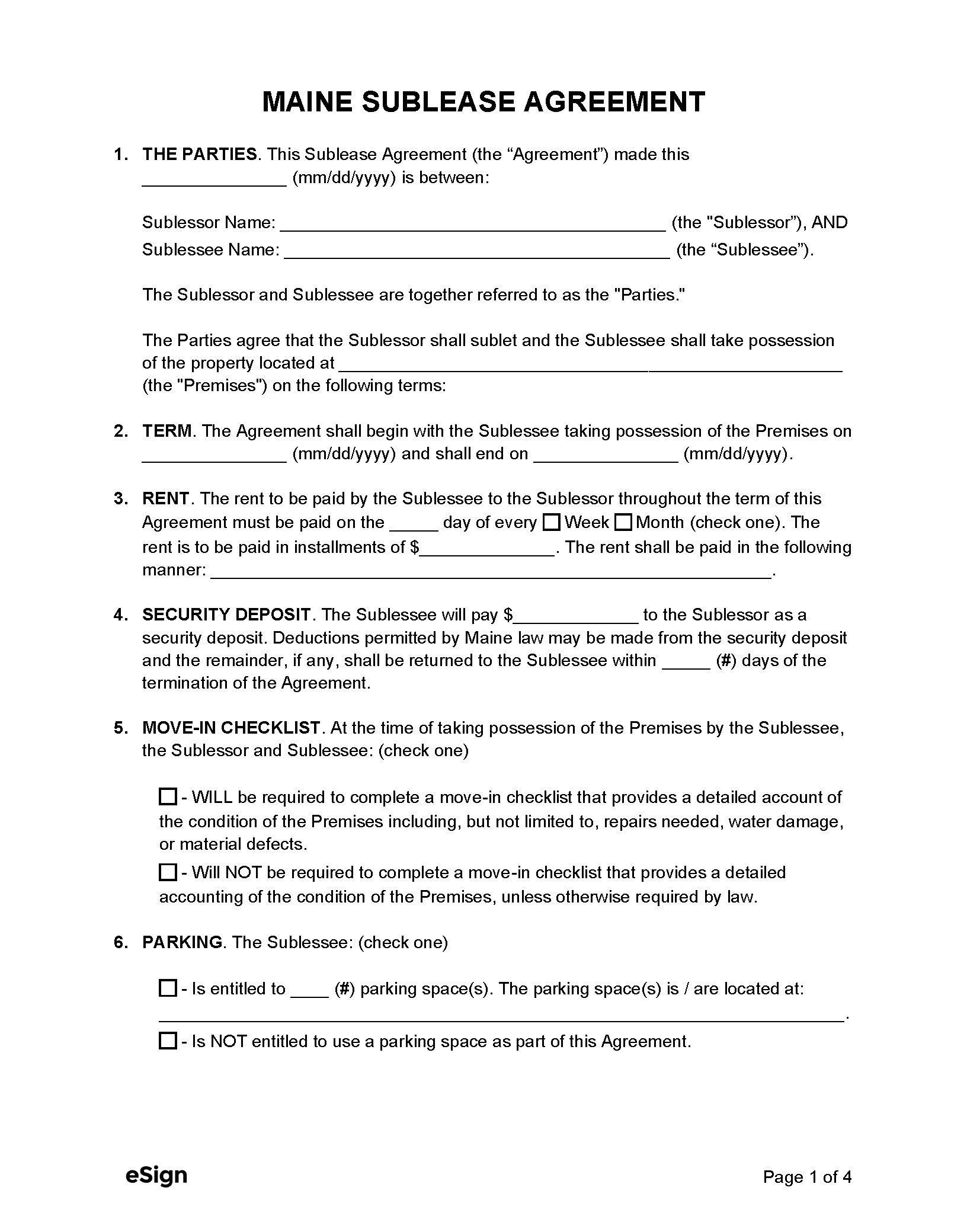 Sublease Agreement – A sublease agreement is employed when a tenant wishes to rent out a portion or all of the rental property to another individual. Sublease Agreement – A sublease agreement is employed when a tenant wishes to rent out a portion or all of the rental property to another individual.
Download: PDF, Word (.docx), OpenDocument |
Required Disclosures (8)
- Bedbugs (PDF) – The landlord must disclose to the tenant, in writing, any information regarding bed bugs located in the rental unit or an adjacent rental unit.[1]
- Common Area Utilities – The tenant must agree in writing if they will pay for utilities used in common areas and must also receive a reduction in rent or other compensation for the extra expense.[2]
- Energy Efficiency Disclosure (PDF) – Tenants who will be paying for utilities are entitled to receive a residential energy efficiency disclosure statement.[3]
- Lead-Based Paint Disclosure (PDF) – It is a federal requirement that the landlord of any property built in or before 1978 must give a written disclosure to their tenants that discloses the risk of lead-based paint on the premises.[4]
- Radon Disclosure Form (PDF) – Since 2012, landlords are required to test every ten years for the existence of radon gas. The results must be recorded in a form issued to every tenant.[5]
- Rental Housing Rights Disclosure Form (City of Portland ONLY) (PDF) – This pamphlet outlines tenant’s rights and required disclosures and must be given to all Portland tenants and signed before occupancy.[6]
- Security Deposit Location – The landlord must provide the tenant with the institution and account number where their security deposit is held.[7]
- Smoking Policy Disclosure (PDF) – The landlord must supply the tenant with a disclosure that states their smoking policy.[8]
Security Deposits
Maximum Amount ($) – A landlord cannot charge an amount greater than two months’ rent as a security deposit.[9]
- Portland ONLY: The maximum security deposit amount is one month’s rent.[10]
Collecting Interest – Interest doesn’t need to be collected on security deposits.
Returning to Tenant – The security deposit must be returned within 30 days for fixed-term leases and within 21 days for month-to-month tenancies.[11]
Itemized List Required? – Yes, the landlord must give the tenant a list of any deductions made to their deposit.[12]
Separate Bank Account? – Security deposits must be held in a separate bank account that places the amount beyond the claim of creditors.[13]
Landlord’s Access
General Access – The landlord should provide 24 hours’ notice before accessing the property.[14]
Immediate Access – If the landlord needs to access the property in the case of an emergency, they can do so immediately and without warning.[15]
Rent Payments
Grace Period – Landlords must give tenants 15 days from the rent due date before charging late fees.[16]
Maximum Late Fees ($) – A landlord may not charge more than 4% of the total cost of monthly rent.[17]
Bad Check (NSF) Fee – There are no state statutes regarding what a landlord may charge for bounced checks.
Withholding Rent – If the landlord doesn’t make necessary repairs after 14 days of receiving notice, the tenant may make the repairs and deduct the cost from their rent. However, the repair cost can’t exceed $500 or half the monthly rent, whichever is greater, and the landlord is entitled to receive an itemized statement of the costs.[18]
Breaking a Lease
Non-Payment of Rent – If the tenant doesn’t make their rent payment on time, the landlord can give them a 7-day notice to quit.[19]
Non-Compliance – The landlord can give non-compliant tenants 7-days’ notice to fix their non-compliance or have their lease terminated.[20]
Lockouts – Although not specifically mentioned in state statutes, the landlord cannot change the tenant’s locks without a court order.
Leaving Before the End Date – If a tenant moves out of the property before their lease terminates, they may be held liable for unpaid rent covering the remainder of their lease term minus any earnings the landlord receives from rerenting the premises.[21]
Lease Termination
Month-to-Month Tenancy – Both the tenant and landlord can terminate a monthly tenancy with 30 days’ notice.[22]
Unclaimed Property – If the tenant leaves any belongings behind after moving out, the landlord must put them in safe storage and give notice to the tenant. The tenant must collect the property within 7 days of receiving notice or 14 days if they respond to the notice. After this period, the landlord may sell the property to cover storage costs, damages, and rent owed, with any excess funds given to the Treasurer of State.[23]
